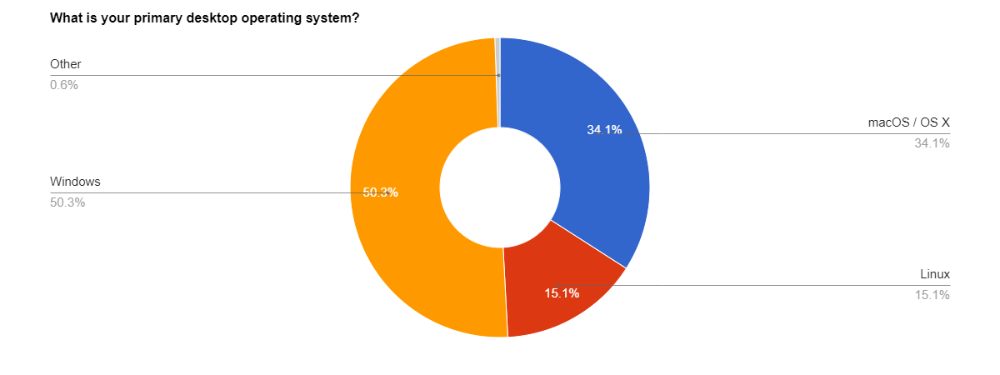In addition to the languages in which developers program, frameworks on which they build, and databases in which they persist information, there is also one's own working environment. The so-called development environment or the editor is certainly the central tool, but also the operating system on one's own laptop or the websites that one uses most often. There is certainly a lot of room for change here - but only the three most frequently requested were included in 2019.
What many people don't know: Developers are increasingly using the command line again today. This is mainly to automate development processes via shell scripts and to better document processes. Accordingly, the astonishingly high proportion of developers writing scripts. Almost all languages provide command line tools and hardly any provide graphical interfaces for developers - clicking is simply slower. Documenting and applying commands is much more effective than navigating around in endless dialog windows of overloaded IDEs and taking screenshots. This can also be seen in the popularity of Vim and Emacs as command line editors.
